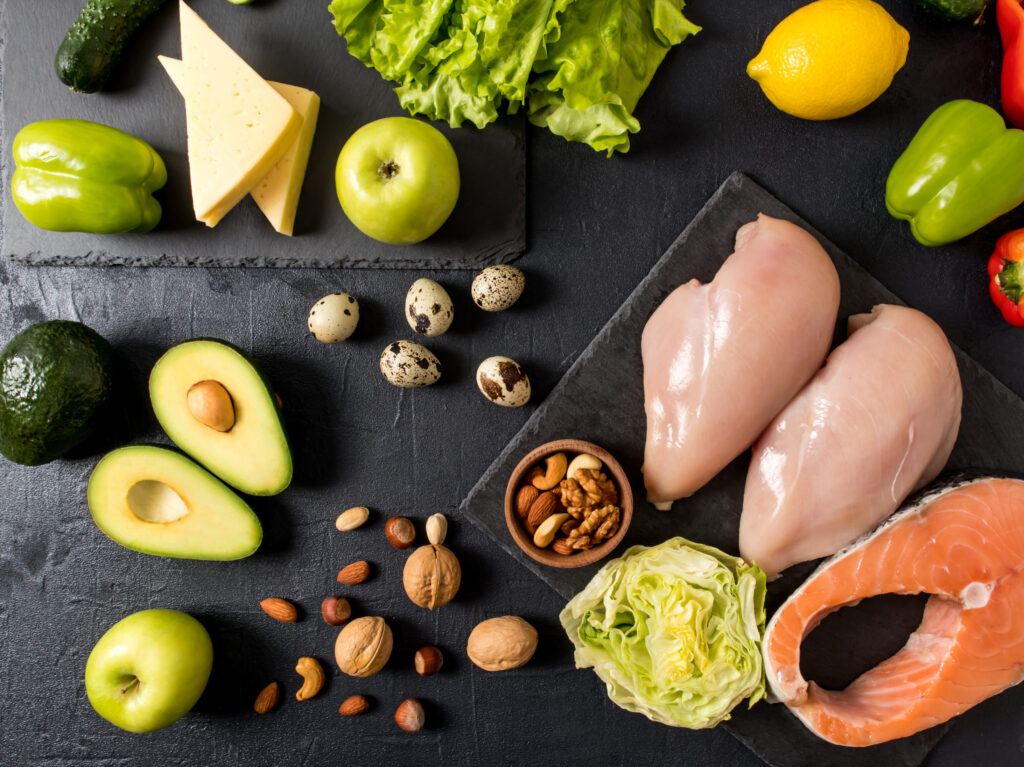Last time you had an exam or a presentation to make, did you have that stomach-churning, gut-wrenching feeling? Blame it on your gut because Hippocrates, the father of modern medicine, rightly quoted, ‘All disease begins in the gut’.
Quite literally, the gut is found to be the center of both your mental and physical health.
Did you know that there is a direct message relay that takes place between your brain and your gut? Read on to learn more.

Gut- The center point of your body
Nancy S. Mure, Ph.D., who is also a holistic Nutrition and Natural Healing Practitioner, quotes, “If there’s one thing to know about the human body; it’s this: the human body has a ringmaster. This ringmaster controls your digestion, immunity, brain, weight, health, and even your happiness. This ringmaster is the gut”.
Hence, it becomes important to keep this ringmaster happy and healthy to keep the circus of life going well.
Gut Microbiome-What is it, and why is it important?
Your gut or gastrointestinal tract is home to trillions of microorganisms. The total number of microorganisms residing in the small and large intestines and their genetic material together is known as the gut microbiome. This microbiome contains bacteria (both good and bad), fungi, and viruses.
The microorganisms are essential as they maintain your gut health by helping in the absorption of nutrients, protection from pathogens, synthesizing products that strengthen the gut wall, and boosting the immune system. As it is necessary to have an equilibrium in life. It is also essential to have the right balance of various microbial populations for augmenting gut health. From the moment you are born, the birth canal is the first passage from where you obtain your gut microbiome and the composition of the microbial inhabitants keeps changing throughout your life.
The right balance
- It is of utmost importance to have the right balance of these microbial populations, and any imbalance in this close-knit network can make a person prone to many diseases. It is necessary to maintain the perfect ratio of good to bad bacteria in order to keep your gut health in check.
- Another important factor is to have a diverse microbial population. A study conducted on the Chinese people by researcher Jiangchao Zhao found that people who live longer have different kinds of gut bacteria than those who do not.
Gut health and Disease associations
Any disbalance in the gut microflora can send your overall health for a toss and lead to many autoimmune and inflammatory diseases. Several research studies have shown that increased gut wall permeability and imbalance in the gut microbiome may lead to many diseases.
Type 1 Diabetes has been linked to a breach in the gut wall arising from an unbalanced gut microbiome. Autoimmune diseases like Rheumatoid Arthritis may also be manifested similarly. Inflammatory Bowel Disease, Celiac disease, Crohn’s disease, leaky gut syndrome, and a plethora of other allergic, infectious and autoimmune diseases have been associated with a disbalance in the gut microbial flora. Not to forget cancer which may also originate from an unhealthy gut.
The thoughtful gut
The gut microbiome is also well connected to the brain via an important nerve called the Vagus nerve. The signals are relayed between the two, maintaining the gut-brain axis. A symbiotic relationship exists between the gut microbiome and the brain. Conditions such as stress and anxiety have been shown to affect the gut by reducing the diversity of the gut microflora and causing a disbalance. Many other mental health conditions also have their roots in an unbalanced gut microbiome.
Do not miss out on the signs and symptoms of an unhealthy gut
Upset Stomach- Diarrhea or constipation, gas, bloating, and heartburn.
Increased sugar cravings- Regular consumption of sugary, refined foods can be a cause.
Intolerance to certain foods- Difficulty in digesting some foods leading to gas, abdominal pain, bloating, etc.
Unintentional weight gain/loss- Gaining or losing weight without changing your diet or exercise regime.
Chronic fatigue- You feel tired most of the time.
Irritated skin- Skin conditions such as eczema can be a manifestation of gut microbiome imbalance.
Poor/Disturbed sleep- A hormone (Chemical) called serotonin that regulates sleep is produced in the gut. So, a damaged gut can lead to sleep disturbances.
Autoimmune diseases- chronic inflammation as a result of an unbalanced gut can give rise to conditions such as arthritis, Type1 Diabetes, and thyroid problems.
Mental Health problems-Migraines, stress, anxiety, and depression can be a consequence of impaired gut function.
Diet Check= Gut Check
A well-balanced diet can do wonders to improve your gut health. In addition, it can also uplift your mood. Avoid Inflammation causing foods loaded with preservatives, artificial trans fats, and refined carbohydrates. Packaged and processed foods should also be averted.
Fibrous foods
Begin your day with a variety of colorful fruits on your breakfast plate. Ditch the foods loaded with preservatives. Replace these with foods full of fiber, such as oats, millets, and legumes. Eating fibrous foods routinely can keep stress and anxiety at bay and make your gut bacteria happy too. So, stock up your tummy with whole grains, beans, peas, legumes, bulgur wheat, quinoa, etc.
Healthy fats
Foods rich in omega-3 fatty acids help maintain the bacterial diversity of the gut and protect from many diseases. So next time you go grocery shopping, make sure you buy some fish and seafood. Also, don’t forget to munch on some nuts like walnuts and almonds. These are excellent sources of antioxidants and are anti-inflammatory.

Probiotics
A diet supplemented with probiotics can do wonders to make your gut healthy. Rather than popping in Probiotic Supplements, make sure to add live cultures of good bacteria by eating yogurt, buttermilk, kefir, and fermented foods like sauerkraut, tempeh, and kimchi. These foods help maintain an intact gut wall and a healthy gut microbial flora.
Prebiotics
Prebiotics are different from probiotics and can uplift your mood and keep diseases away by reducing inflammation. Take benefits from the antioxidant properties of onions, garlic, tomatoes, leeks, ginger, and fruits like apples and bananas. Don’t forget the king of superfoods, Broccoli.
Variety is the spice of life.
Do not let the same food rotate and make up your weekly diet chart. Break the monotony because the army of microorganisms in your gut wouldn’t like it!
Have a variety of fruits, don’t just get stuck on your regular apple and banana every day. Move on to some juicy Kiwis and figs. Yes, Broccoli is a superfood, but there is no harm in including some Red Cabbage, Kidney beans, and artichokes in your diet. Eat mushrooms, a great source of fiber, protein, and antioxidants.
Some other ways to heal Your gut
Sweat it out
Chalk out an exercise routine for yourself. Make sure to take walks, run, and cycle. Many studies have shown the benefits of exercising and its effect on gut flora. There has been an association of increased gut biodiversity with regular exercising.

Sleep Well
A good night’s sleep relaxes your mind. It also alleviates your bad mood. It’s important to sleep 8 hours a day to remain healthy. It becomes imperative to relax your brain and follow a proper sleep-wake cycle for a well-functioning gut-brain axis. This, in turn, will keep your gut healthy and happy.
Let’s Summarize
Your body is like a garden, so always nurture it with the right nutrients and right care so that it blossoms well. And the gateway to a healthy body is a healthy gut. For more tips on gut health and a healthy lifestyle, download the JoyScore App now!



